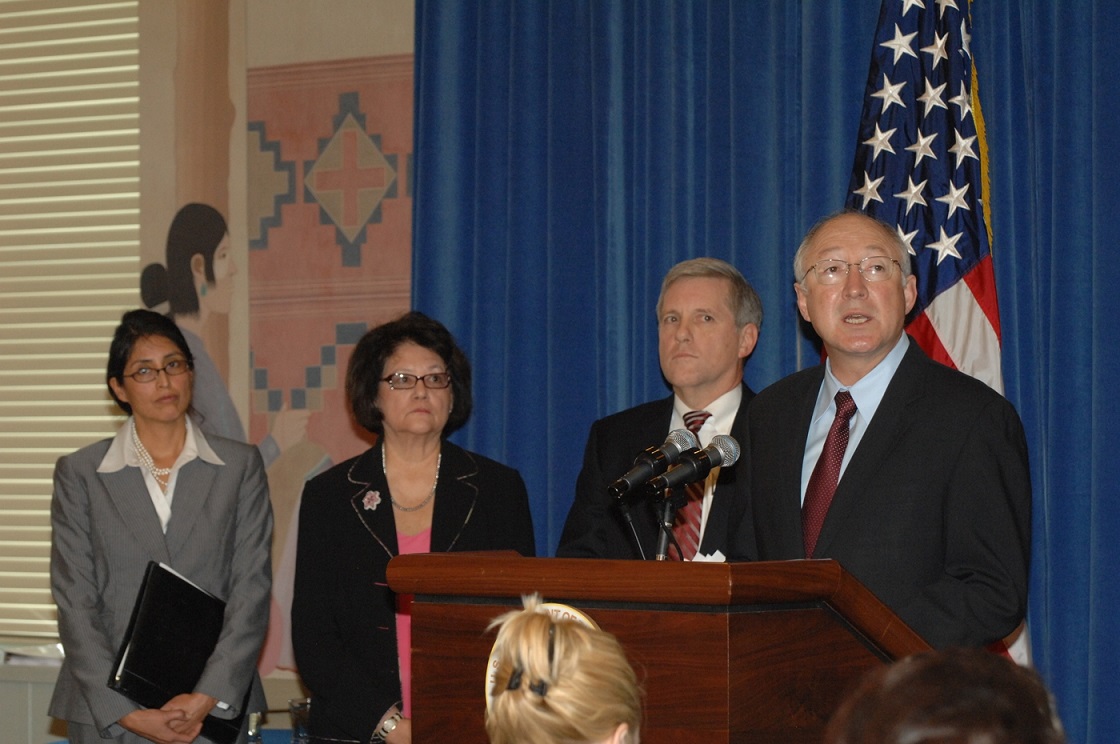Today, November 22, Blackfeet tribal leader Elouise Cobell will be among 21 recipients of the Presidential Medal of Freedom. The White House announcement cites Cobell’s efforts to found the Native American Bank and her inspiration to Native American women as the reasons for the award, but her most notable legacy is the case of Cobell v. Salazar.
As an astute banker and financial leader, Cobell filed a suit against President Clinton’s Secretary of the Interior Bruce Babbitt in 1996. The suit alleged that the federal government as the trustee for Indian lands had withheld and even lost more than $150 billion received for oil, timber, mineral and other leases of Indian lands. Ultimately the suit grew into a class action claim with as many as 500,000 plaintiffs claiming a federal liability of $176 billion. Though Cobell died in 2011, she lived long enough to see the case settled in 2009 for $3.4 billion, a pittance compared to the amounts allegedly lost.

In addition to the Cobell settlement, a 2015 report from the Government Accountability Office documented how poorly the government has lived up to its trust responsibility. It found that poor management by the Bureau of Indian Affairs has hindered Indian energy development and resulted in “missed development opportunities, lost revenue, and jeopardized viability of projects.”
It is appropriate that Elouise Cobell be honored with the Presidential Medal of Freedom, but it would be better yet if the federal government would grant all Indians the freedom suggested by the award’s title. Since Chief Justice John Marshall declared in 1832 that the Cherokees were a “domestic dependent nation” and characterized the relationship of tribes to the United States as “that of a ward to his guardian,” Native Americans have been held in bureaucratic bondage. That bondage includes federal trusteeship over the resources at issue in Cobell v. Salazar.
President-elect Trump is well positioned to grant more freedom to Native Americans. Just prior to the election, the newly formed Native American Coalition made up of members of tribal organizations from 15 states endorsed candidate Trump. That endorsement opens the door for a new relationship between tribes and the federal government.
Chairman of the Native American Coalition, Markwayne Mullin (R-Oklahoma and a member of the Cherokee Nation) captured the nature of federal control over Indian Country and path to reducing that control: “The daily flood of new federal regulations keep[s] Indian Country from becoming self-sufficient. Local tribal decisions, not federal bureaucrats, are the best way to improve our communities… I will stand with Donald Trump in supporting tribal sovereignty and reining in federal over-regulation.”
Considering the fact that tribes have an estimated $1.5 trillion in energy resources, President Trump should start by promoting more tribal authority over those resources. Congress tried to help with legislation in 2005 giving tribes authority to lease energy resources without approval from the Department of the Interior, but tribes did not take advantage of the legislation calling the process too complicated and confusing. More recently, both houses have passed bills (S 209 and H.R. 538) trying to simplify the permitting process.
Such legislation is helping tribes like the coal-rich Crow. In 2013 it signed an option with Cloud Peak Energy, LLC to lease 1.4 billion tons of reservation coal. For the option, Cloud Peak paid the tribe $3.75 million and payments could increase to $10 million by 2018 if they start mining.
These kinds of deals give Indians some reason for hope. New Mexico State Representative Sharon Clachischilliage believes that the Native American Coalition and the Trump administration can “block the bureaucrats holding Native American business back and bring new jobs” to Indian Country. In the same vein, Fleming Begaye, Sr., a revered Navajo Code Talker, voted for Trump saying, “Native Americans need a federal government that gets out of the way of small business.”
The Trump administration should make it a priority to further honor Elouise Cobell’s memory by freeing Native Americans from their bureaucratic bonds. This would give them what Nez Perce Chief Joseph asked for in 1879: “Let me be a free man, free to travel, free to stop, free to work, free to trade where I choose, free to follow the religion of my fathers, free to talk, think, and act for myself.” It’s time for that freedom to be realized.
This article originally appeared in Forbes on November 22, 2016.





